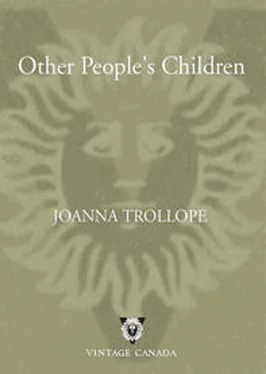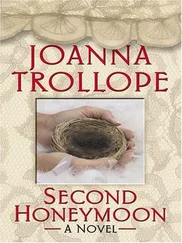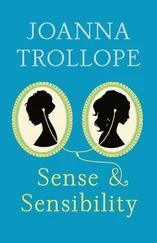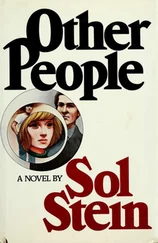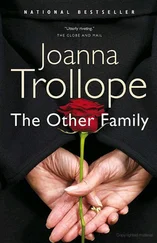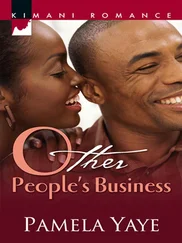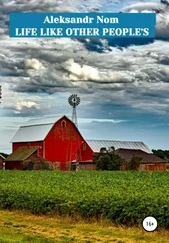‘Mum?’
Slowly, Nadine looked up. Her face was wretched, drowned.
‘I thought you’d be asleep.’
‘I couldn’t. I’m so cold—’
Nadine said, ‘It’s awful, isn’t it, the cold. I’ve never been so cold either.’
She pulled up a corner of the rug and blotted her eyes with it.
Becky came further into the room.
‘D’you want some tea?’
Nadine said, ‘There isn’t any milk.’ She found a tissue in her sleeve and blew her nose.
‘You could have it black.’
‘Thank you,’ Nadine said. She was shivering, from crying so much.
Becky went past her and ran water into the kettle. It was a grotty kettle, choked with lime on the inside and all its shine gone on the outside. Heaven knows where it had come from. It wasn’t in the least familiar to Becky.
‘I’m sorry,’ Nadine said.
Becky said nothing. She leaned into the sink and stared hard at the water running into the kettle.
‘It’s just—’
Becky waited.
‘It’s just that it’s so awful and I get so angry because I’m so powerless. This horrible cottage—’
Becky turned off the tap.
‘You chose it,’ she said.
‘I did not!’ Nadine shrieked. ‘I did not! It was the only one we could afford!’
Becky closed her eyes for a moment, and swallowed. Then she opened them again, fitted the plug into the kettle and switched it on, staying by it, while it spluttered into life, her back to Nadine. She shouldn’t have said that, she shouldn’t have answered back. It would just start everything off again. No matter that she was right, no matter that she and Nadine and Rory and Clare had driven round and round Herefordshire for what seemed like weeks, looking at cottages for rent, with Nadine saying, ‘No, no, no,’ to every one, even the decent ones with proper bathrooms and bus stops nearby, and then at last, when they’d pulled up in dismay in front of this utterly doomed place which looked like the witch’s house in a fairytale – there were even mushrooms growing on the roof – miles from anywhere, she’d said, ‘Yes.’ They’d all groaned, wailing with incomprehension and horror. ‘Yes,’ Nadine had said again, ‘Yes.’
‘Did you hear me?’ Nadine said. Her voice was calmer.
‘Yes,’ Becky said.
‘It’s true. This is the cheapest and the cheapest is what we had to have. You know why.’
Becky said nothing. She thought of the car, which Nadine had also spent a long time finding, with its rust patches and holey floor, parked outside in a mouldering lean-to of planks and corrugated iron. It was frightening to think that something so fragile was her only link back to the outside world, a world in which, at this precise moment, even school seemed attractive. She thought, briefly, of her father’s car and then switched the thought off again, abruptly, bang.
‘I know it’s awful for you here,’ Nadine said. ‘I feel really badly about it. It’s awful for me, too. I’ve never lived like this, not even as a student.’
Becky put a teabag in a mug, poured boiling water on to it, squeezed the bag against the side of the mug with a spoon and fished it out. She turned and put the mug down in front of Nadine.
‘Could you get a job?’
‘How?’ Nadine said. ‘How? With no-one to get all of you to school and back but me?’
Becky tried not to remember all the cottages they’d seen on bus routes.
‘Could you get a part-time job, in Ross or somewhere, while we’re at school?’
‘Shop girl?’ Nadine enquired sweetly.
‘Maybe. I dunno. I wouldn’t mind a Saturday job in a shop.’
‘You’re too young. Anyway, how would you get there?’
Becky shrugged.
‘Bike, maybe.’
‘And where will you get a bike?’
Becky opened her mouth to say, ‘I’ll ask Dad,’ and closed it again, too late.
‘From your father, no doubt,’ Nadine said. ‘Your honey mooning father with his nice new house to come home to.’
‘It’s not very new,’ Becky said.
‘But rather,’ Nadine said dangerously, ‘newer than this.’
Becky was suddenly very tired. She put her hands on the table among the dirty plates and let her head hang, feeling her hair swinging down, heavy and dark, like Nadine’s.
‘I wish—’
‘What do you wish?’
‘I wish – you didn’t hate him like this.’
Nadine took a swallow of tea, and made a face at it.
‘What would you do, in my place?’
Becky said nothing. She observed that her black nail varnish had chipped, and resolved that she would just let it chip until it all came off of its own accord, bit by bit. Then she’d paint them green.
‘If the person you loved and had been married to for seventeen years – seventeen – suddenly told you he was marrying someone else, and that you would have to go and live somewhere else on almost no money, how would you feel?’
Inside Becky’s head, a little sentence formed itself and hung there. It read: It wasn’t like that. She said, ‘But we’ve got to see him. We’ve got to go on seeing him.’
Nadine looked at her. Her light-blue eyes were wide with fervour.
‘Exactly. Exactly . And can’t you just use one ounce of imagination and see how agonizing that is for me to bear?’
In the morning, Nadine drove them all to school, Clare to the nearest junior school and Rory and Becky to the comprehensive where Clare would join them, when she was eleven. They had been at their new schools for two terms, ever since it became plain that Matthew really did mean to marry Josie and Nadine had decided that it was intolerable for her, and the children, to stay in Sedgebury. Matthew had wanted her to stay, so that the children at least had the continuity of school and friends and grandparents, but she had refused. She had been in such violent pain that she had believed, passionately, that the only way she could possibly assuage it was by getting out, getting away from everything that was familiar, and was now denied to her. The children had complained bitterly – they complained a lot more then, she had noticed, than they did now – but she had told them it had to be. Nobody wanted this new life, but they had to live it.
‘You must reconcile yourselves to it,’ she’d said. ‘You must learn.’
They didn’t, she thought, much like their new schools, but they bore them. They were inevitably more rural than the schools in Sedgebury, and though no rougher, the roughness took a different form, and Nadine worried that her children didn’t quite understand the un spoken rules of this more reticent, countrified community with its own kind of unarticulated toughness. She thought they’d got quieter. When she was talking to them, or angry, she blamed this new quietness on Matthew and Josie, but when she was alone in the cottage in the middle of the day, she sometimes, and despite all the frightening turbulence of her feelings, admitted that it was not as simple as that. When she dropped them at school, she always said, ‘Three-thirty!’ to them, as if encouraging them to think she was only seven hours away. Becky had suggested that she didn’t drive them all the way to school, but dropped them at a collecting point, halfway, where they could join the school bus. But she’d said no.
‘You need me,’ she said to Becky. ‘For the moment, anyway. You need me to be there.’
‘And I,’ she thought to herself, reversing the car badly in the gateway to Becky and Rory’s school, ‘need them to be there. I’d just drown without them.’
When she got home, she resolved, she would clean the cottage and do some washing and put at least clean pillow cases on the beds – if there were any – and find something to make a fire with. She might even ring the chimney sweep. She would also, with the screwed-up fiver she had found in her jacket pocket – a heavy knitted jacket she hadn’t worn since last winter – buy something for supper. Macaroni and cheese maybe, or potatoes and eggs. When she was a student, she’d lived on potatoes and eggs. For half a crown, you could buy enough of both to last you as egg and chips for three days. Her skin had got terrible. She remembered it clearly, because she’d always had good skin, the kind of skin you didn’t have to bother with because it seemed to take care of itself, and it developed spots and rough, dry patches and went dead-looking, in protest at all the egg and chips. So she’d switched, with the kind of exaggerated enthusiasm that she’d always been at the mercy of, to a macrobiotic diet and ate bean curd and brown rice. Her skin took a pretty poor view of that, too. Nadine put her hand up now, in its rough bright mitten, and touched her face. Her skin had never recovered really. Matthew had told her, when she complained to him about it, that she’d gone too far, pushed it beyond its limits. He was always accusing her of that, always telling her that she pushed everything too far, people, causes, opinions, him. Matthew … At the thought of his name, Nadine gave a little scream out loud and beat impotently on the steering wheel.
Читать дальше
